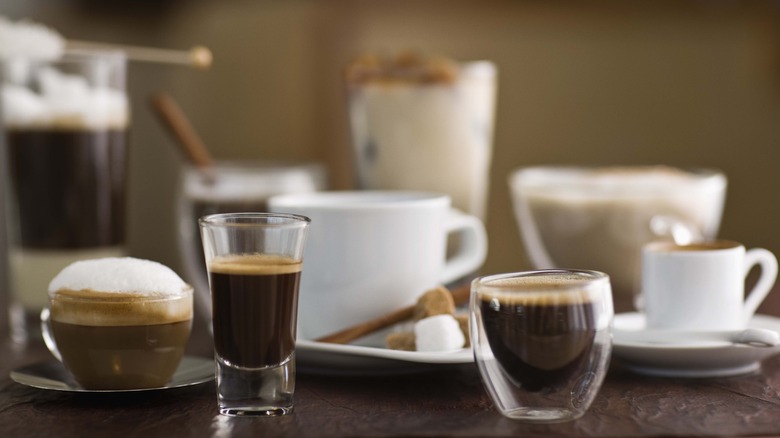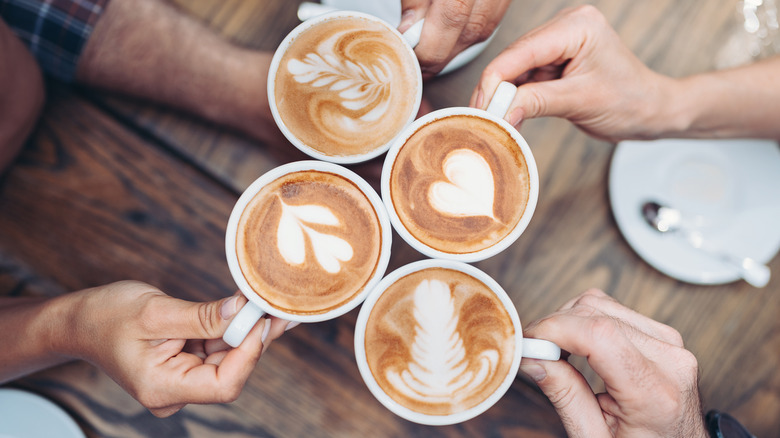How To Order Coffee In German Without Sounding Like A Tourist
You're on vacation in Germany and you need some coffee. You can absolutely find a Starbucks to satiate your caffeine needs – there are 16 locations in Berlin alone. It's familiar and you'll know what to expect, but it's bound to be more expensive, overly familiar, and full of other tourists. So — hear us out — we encourage you to go to a local café to really experience the culture. Sure, no one wants to look or sound like a tourist, and German is a complicated language that can trip up English speakers. But if you practice, you won't look (and sound) so much like a tourist in Hamburg or Dresden.
The German language is a precise, specific language — they have a word for everything. So when you order your coffee, or kaffee, you need to be just as precise, or else you might not get what you thought you asked for. For example, there's a difference between a milchkaffee (a latte) and a kaffee mit milch, or a coffee with a touch of milk. Lactose intolerant or vegan? You can ask for mandelmilch, sojamilch, or hafermilch — almond, soy, or oat milks, respectively. If you like it black, ask for Scwarzkaffee: mit zucker, with sugar, if you'd like. Asking for "einen kaffee," will get you just a cup of drip coffee. If a bustling marktplatz café isn't your thing, you can find a German bäckerei where coffee is cheaper, and you can purchase fresh Brötchen bread, pastries, and sandwiches.
Meeting with friends often revolves around coffee and cake
German coffee culture is so prevalent that they drink it more often than water or beer and they're third in coffee consumption behind the U.S. and Brazil. The most common cup is a simple americano style, rather than an espresso or mocha. And, like their food, German roasts tend to be milder than a French roast. Germans created both the filtered coffee process and the drip brewer, so it's no surprise that Germans prefer a simpler brew than a complicated Starbucks order like a French vanilla fat-free latte with whip and cinnamon and 20 pumps of different syrups.
Coffee is such an important part of German culture that friends often get together for kaffee und kuchen, to catch up over a coffee and some cake. The tradition is called kaffeeklatsch and you can find friends catching up everywhere from cafés to offices to people's homes. Bakeries sell yeasted pastries that are simple and sometimes feature fruit. If you venture to a German pastry shop, a konditorei, they'll have slightly fancier cakes sold by the slice, and usually a small café attached. If you need a break from wandering around Munich or Frankfurt you can seek out one of the pastry shops and form your own kaffeeklatsch with your travel companions. You can test out your newfound German language skills and relax with coffee and Black Forest cake.

